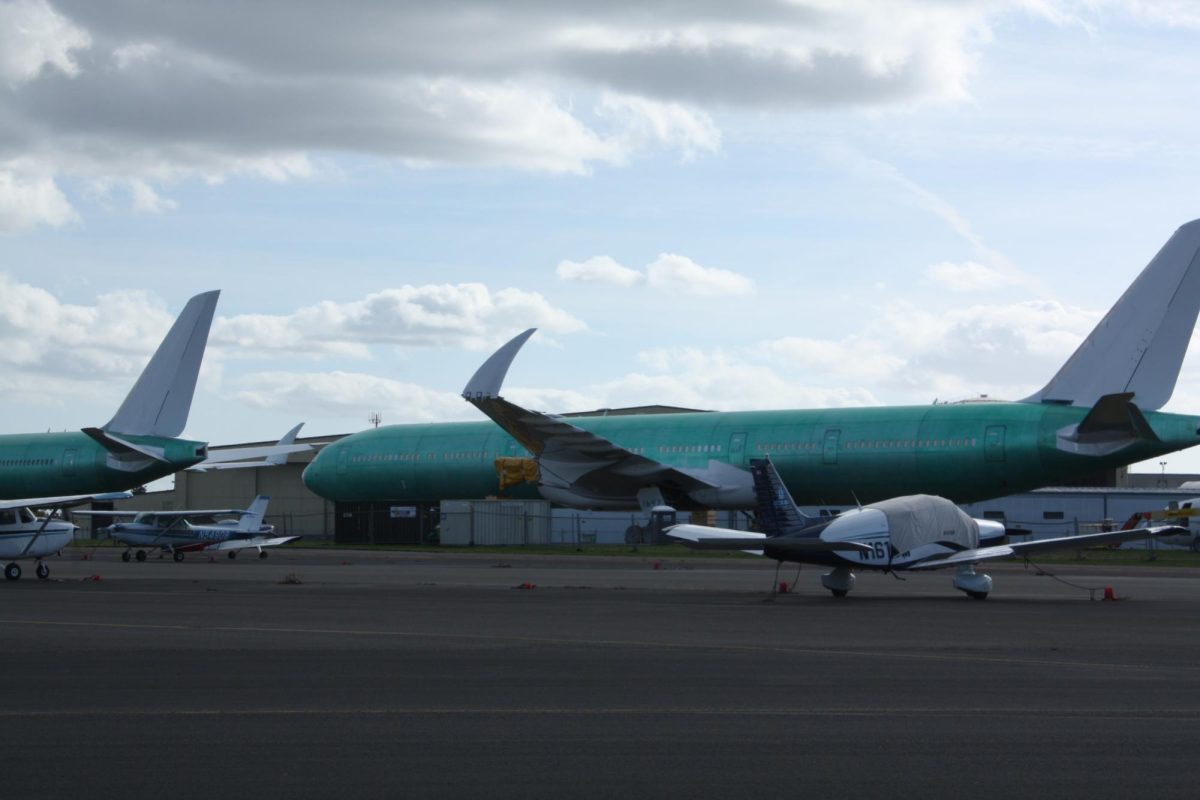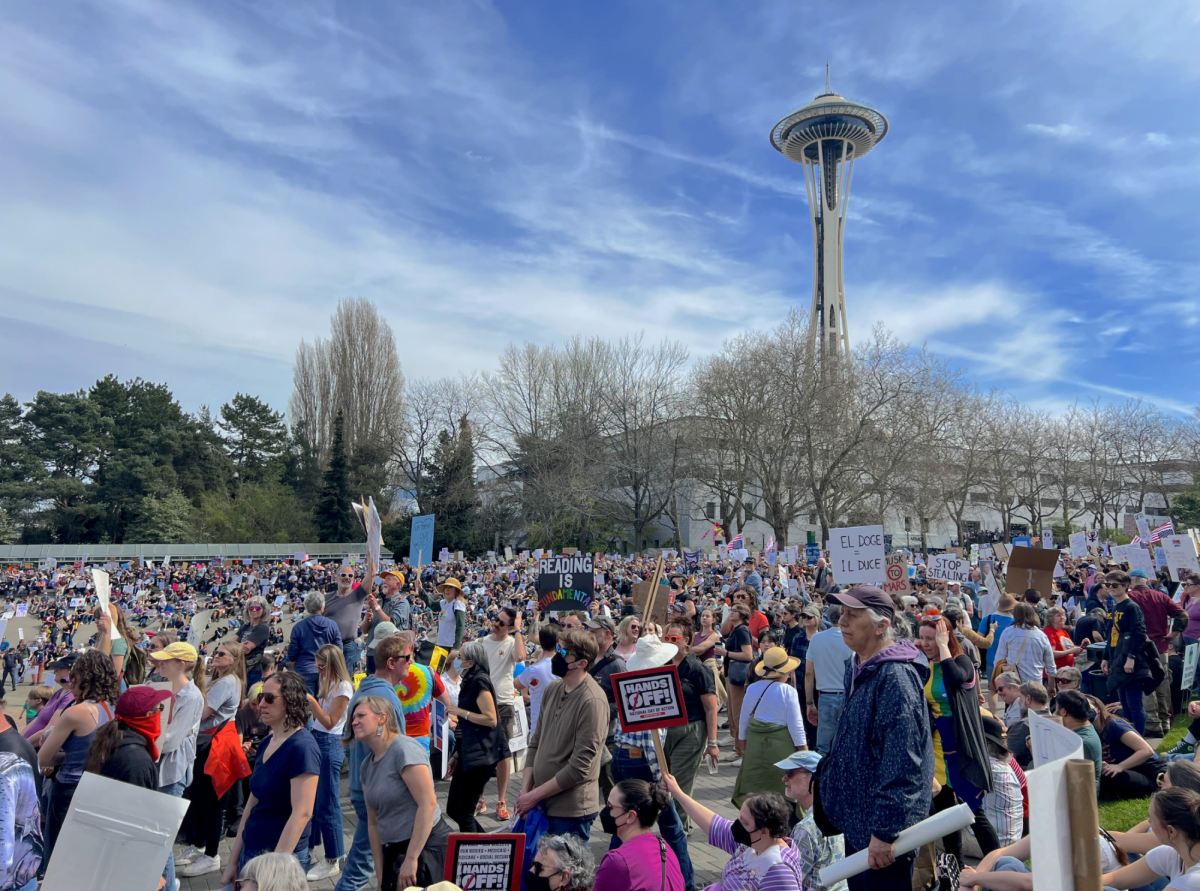An ongoing battle continues at Boeing’s plant in Renton, Wash. after 33,000 workers walked off the job.
Strikes started Sept. 13 after Boeing’s biggest union, The International Association of Machinists and Aerospace Workers (IAM), rejected a proposed contract that would increase pay by 25% over four years. Workers are instead seeking a 40% pay increase over a three to four year period.
Ivonne Lares, a fourth-year creative writing major, has driven past the strikes on multiple occasions.
“They were there all hours of the day, from morning to night. I think they were doing shifts but it seemed very long and tiring,” Lares said.
It is currently the largest strike underway in the United States and has halted production. It is estimated that the strike has cost Boeing between $50 million to $100 million each day since the strike started.
Boeing offered the IAM their “best and final” offer of a 30% raise Sept. 24. This offer also included a reinstatement of performance bonuses, improved retirement benefits and a double ratification bonus if workers accepted the offer by Sept. 27. However, the IAM refused to put the offer to a vote as the proposal fell short of the union’s demands.
Boeing also recently announced that they are planning to lay off 10% of their workers, a move that will be finalized in the next month. According to the Seattle Times, the striking machinists are not expected to be among those let go.
Rachael Brown, director of the project center at Seattle University’s College of Science and Engineering, believes that it will take further negotiation between the two before they come to a final decision.
This past year, Boeing has been in hot water for faulty equipment leading to several in-flight accidents. One example occurred Jan. 5, when a door plug blew off midair on Boeing’s 737 MAX 9 model aircraft.
In February, an unnamed employee claimed that Boeing management has been cutting corners. This employee revealed that “policies and procedures are ignored in the name of efficiency.”
Nike Adejumobi, a third-year civil engineering major, is disappointed but not surprised.
“It’s also frustrating and almost ironic as an engineering company being in this field,” Adejumobi said. “I feel like the number one thing that people always tell you is that safety is the highest priority for everything and you’re supposed to know quality over quantity.”
Brown emphasizes the importance of connecting to your leadership emotionally and logically so that, “they feel compelled to do something about it.”
“As a STEM professional, you have to know how to stand up to the higher-ups and build that case as to why it’s important to have these safety features or not cut these corners,” Brown said. “It’s all over the place. It happens all the time and so how do you push back? And one of the things that I want to try and ingrain in our students is that these mistakes frequently cost more in the long run than had you just taken care of it.”
Amidst all this, Boeing and Seattle U’s relationship has remained resilient and uncompromising.
“I don’t feel like there is gonna be a change in our partnership. I feel like students have already in the past asked for a change and for us to divest from them,” Adejumobi said. “I know the president responded saying that he wasn’t for that, but that he would arrange some sort of meeting with people to discuss our relationship with Boeing, but I feel like that is kind of an empty statement.”
When asked if the partnership between Seattle U and Boeing would be affected, Lares responded in a similar way to Adejumobi, stating that she believes there should be a change.
“As a university and as people who want to help students I feel like we should take into consideration corporations not being there to help us, corporations only looking out for themselves,” Lares said. “So why should we partner with someone who is not looking out for our safety?”
Boeing has gifted Seattle University spaces on campus, including the Boeing Room in the Lemieux Library. Boeing is also among the top employers for Seattle University graduates in STEM departments.
“They have provided grants so that we could do things, like research and ensuring that there’s a higher percentage of women and underrepresented minorities in STEM. And so they’ve been a really good partner in those areas,” Brown said.
The College of Science and Engineering project center has done 68 capstone projects with Boeing since the center opened in 1987. Brown believes that the strikes might cause some difficulty for students seeking internships or employment through Boeing.
“It is going to be harder for students to graduate and go work there or get internships there right now,” Brown said. “That being said, our students are sitting in this region that’s full of STEM employers and so there are all kinds of opportunities.”








